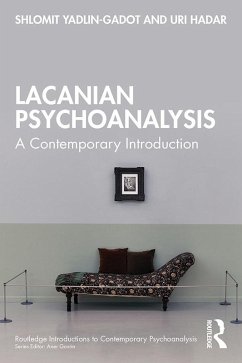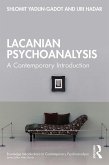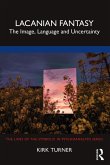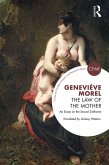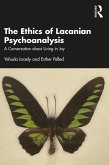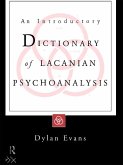This succinct introductory volume offers a fresh exposition of Lacanian thought, marking the philosophic influences and sensibilities that shaped it and presenting its ideas and concepts in a simple language. Illustrations that range from the clinical and cultural to daily contemporary experience enliven the theory and make it easily accessible. The Lacanian psyche is thoroughly explained and described, unfolding as a drama of desire and jouissance, of hopes and disillusions. Its elusive subject is predicated upon otherness and decentred by its various forms: language and culture, meaningful people and the body. From this perspective, the authors illustrate how Lacan showed that love, sex, politics and therapy always involve the desire to be with the other but, at the same time, to be free of her.
Part of the Routledge Introductions to Contemporary Psychoanalysis series, this book is a must-read for psychoanalysts, students and scholars familiar with Lacan's ideas, as well as those approaching his theories for the first time. Lacan's unique and revolutionary understanding of human experience will benefit any scholar of human subjectivity, including art critics, cultural theorists, political commentators and academics in the humanities and social sciences.
Dieser Download kann aus rechtlichen Gründen nur mit Rechnungsadresse in A, B, BG, CY, CZ, D, DK, EW, E, FIN, F, GR, HR, H, IRL, I, LT, L, LR, M, NL, PL, P, R, S, SLO, SK ausgeliefert werden.
"This small book by Yadlin-Gadot and Hadar offers a big achievement. It is introductory in its lucidity and minimal use of jargon, but it is simultaneously subtly sophisticated and utterly non-trivial. It articulates a dimension of human existence relevant not only to the psychoanalytic field, across its various theories and methodologies, but also to any scholar of ideological struggles and of subjectivity as such. It brings out the genius of Lacan as an interpreter of Freud and a remarkably original thinker, whose ideas influenced Western culture as a whole." Slavoj Zizek
"Lacanian Psychoanalysis is, worldwide, now one of the most important psychoanalytic approaches, yet it still often seems obscure and inaccessible. In this timely new introduction, Shlomit Yadlin Gadot and Uri Hadar provide a remarkably clear account of Lacan's central concepts. They focus especially on the 'subject-other' relationship, showing how Lacan gives us tools to understand human psychological development in its social-political context, in so doing offering an indispensable guide to psychosocial life." Professor Stephen Frosch, Department of Psychosocial Studies, Birkbeck, University of London, UK
"I have never read a book that presents Lacanian thought with such clarity and sharpness while moving lively and freely between Lacanian concepts and their contemporary, original interpretation. This is not only an outstanding textbook dealing with Lacanian thought but a simultaneously poetic and clear, playful and rigorous. This is an extraordinary achievement in any context, but it is especially praiseworthy when it comes to a book dealing with the complicated language of Lacan." Dana Amir

